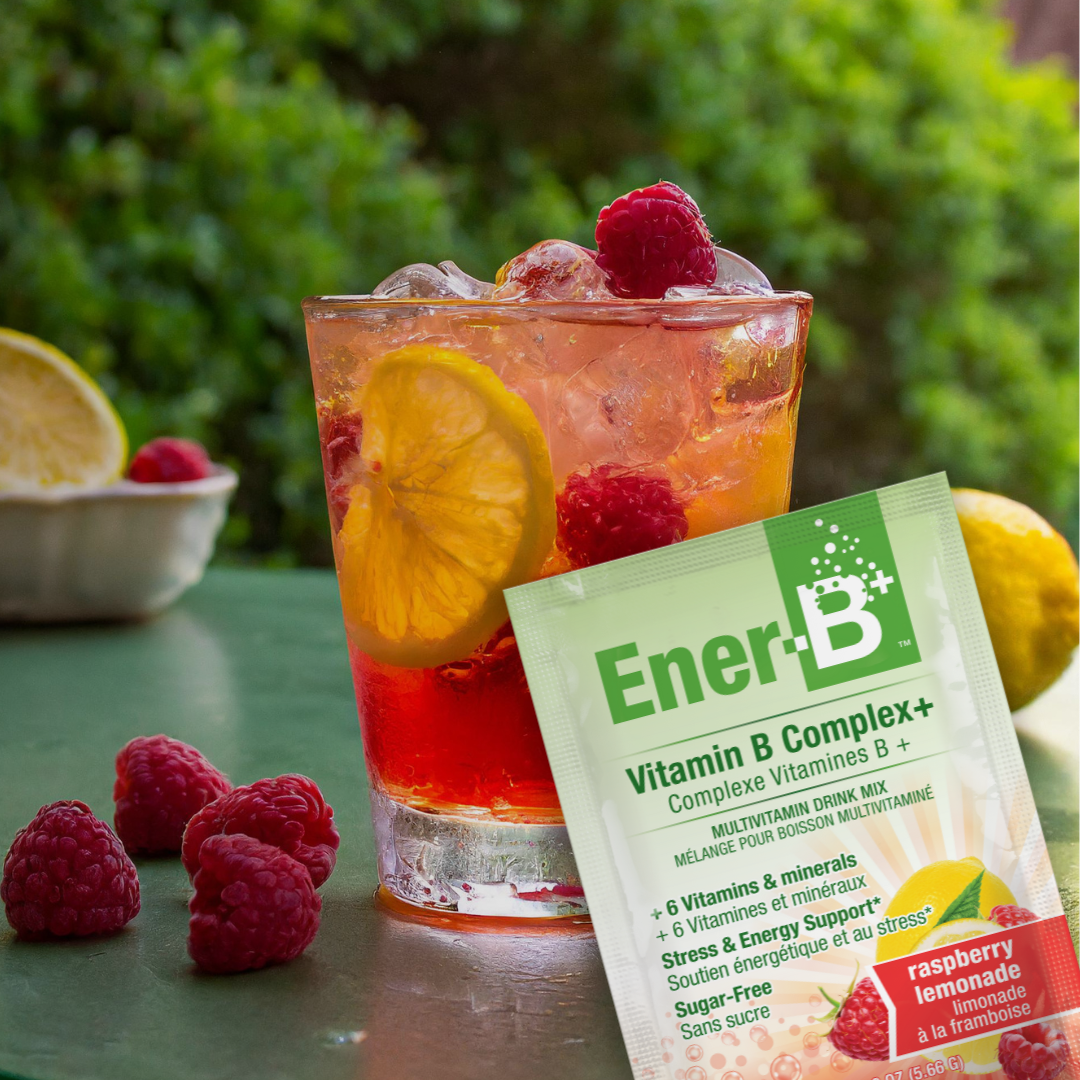
We’ve all seen the classic sports commercials with athletes sipping on their favourite sugar-filled "recovery" beverage. What we don’t hear about is why hydration and electrolytes are crucial to athletes and both their performance and recovery (and why they needn't be filled with excessive amounts of sugar!)
Dehydration is common to experience in its mildest forms, especially during the hot summer months when you forget to drink water. It's easy to get behind in your water intake if you also wake up dehydrated from the day before. We’ve all experienced that feeling of waking up with a dry mouth and trying to lubricate it with the little saliva that we have. In today’s blog post, we are going to be diving in and talking about the signs of dehydration, how to prevent it and the benefits of which electrolytes + water can offer from athletes to desk warriors and everyone in between!
Signs of Dehydration:
- Extreme thirst
- Urinating less than usual
- Headache
- Dark-coloured urine
- Sluggishness and fatigue
- Bad breath
- Dry mouth
- Sugar cravings
- Dizziness, weakness, light-headedness
- Confusion
Some of the obvious causes of dehydration include excessive sweating, such as exercising outside or working in the heat for long periods. Our body immediately initiates a cooling mechanism which results in it releasing fluids to maintain our body temperature. The more vigorous or intense the workout or work, the more water we lose. Another reason for dehydration is due to certain medications. Diuretics, antihistamines and blood pressure medication can increase the risk of dehydration as they cause the individual to urinate frequently. The third cause of dehydration is vomiting or diarrhea, which is common in individuals who are sick and battling an infection. This is the most common cause of dehydration resulting in a large amount of water and electrolytes being lost in a relatively short period of time. Last but not least, the most obvious reason for dehydration is not drinking enough water. Or in some cases, drinking too many caffeinated beverages. Adults should consume roughly 0.5-1.0 ounces of water per pound of body weight, depending on their activity level. Athletes should consume roughly 1 litre of water for every hour of exercise to replace the fluids that they lost. The amount of water recommended to consume on a daily basis can also change depending on the individual's diet. If you are eating a heavily plant-based diet composed of water-rich fruits and vegetables, one can obtain a great deal of water from those, greatly reducing the volume of water they need to drink daily.
Effects of Dehydration on the Body:
Maybe you remember this fact from biology class in high school, or maybe you’ve seen some graphics - our body is composed of roughly 60-70% water. It is essential for regulating our bodily functions and is used to help protect our organs, eliminate wastes and toxins, carry nutrients and oxygen to tissues needing it and plays a vital role in digestion, absorption, circulation, creation of saliva, transportation of nutrients, and the maintenance of our body temperature. When our fluid levels are low, we reduce our internal sodium and electrolyte levels resulting in physical and cognitive impairments causing serious health concerns such as blood clotting, muscle contractions and altering our acid balance and fluid regulation.
Athletes, in particular, are at risk of a decrease in blood volume, skin blood flow, sweat rate, heat dissipation, increased core temperature and increased rate of muscle glycogen depletion. In other words, they have less blood carrying oxygen and nutrients to their tissues, an inability to utilize their internal cooling system through perspiration resulting in heat build-up and their tissues using more muscle glycogen as a result. Without proper fluid balance, athletes can experience impaired muscle contraction and neural activity - both of which are essential to high performance and basics day-to-day activities.
How to Treat Dehydration:
Dehydration can be quickly and easily treated with water and electrolytes consumed at regular intervals. It is recommended that caffeine-containing beverages be avoided until electrolyte and hydration levels have improved. Drinking Ener-C Sport electrolytes before, during and after exercise or when you’re playing or working outside, is an easy and delicious way to replenish one’s stores! Formulated with a combination of minerals, vitamins and potassium to W.H.O. standards for oral rehydration formulas, Sport provides a clinical dose of electrolytes with no caffiene and only 1 g. of non-GMO cane sugar to help your body absorb the electrolytes.
If today’s blog post didn’t motivate you to drink your Ener-C Electrolytes, we don’t know what will. Whatever you do, don’t wait until you start to feel thirsty. By that point, you are already dehydrated. Get ahead of the curve and make sure to sip your water consistently throughout the day and supplement with an electrolyte formula if you are exercising, recovering from an illness, or working outside for long hours!
By Lindsay Mustard. Lindsay is a Holistic Nutritionist, foodie and firefighter-in-training with a burning passion for health and fitness. In her nutrition practice, Lindsay works with clients to craft a unique plan that is tailored to their specific health goals using a natural, whole food and supplement approach.

